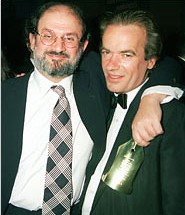I typically put down a book after a single chapter if the narrator’s voice bothers me. But in the past couple weeks I’ve read two books cover to cover that I disliked from the first page: Jonathan Lethem’s The Fortress of Solitude and Ann Cleeves’s Raven Black. Granted, these books belong in two different categories. The first is a literary exploration of Race, Ghetto Fetishism, Art, Superhero-dom, Etc.; the second is a beach thriller set on Scotland’s Shetland Island. But I hated both of them. And yet I kept turning the pages until the end.
As a fiction writer, it can sometimes be enjoyable (in a schadenfreudy way) to read bad fiction. You don’t have to suffer jealousy of great writing. You can spend the time analyzing what you, as an author, would do differently. And you can gloat about being a better writer, even if it’s not true (Is anyone reading me on the beach? No.). You’re reading a book, but the whole time you’re thinking, “I’m reading a book.” I don’t want to read someone’s book; I want to enter another world where the author is invisible and where I’ll learn something worthwhile. But some authors are too good or too bad to disappear into their writing. Jonatham Lethem is a little too good – he writes well, but his voice doesn’t ring true for me. Ann Cleeves is a little too bad – she’s obviously found a story, but not her sea legs.
It’s not the first time I’ve read a disappointing book cover to cover. Sometimes you sense a story that needs to be exposed beneath the surface of poor writing. Sometimes you sense great writing beneath a story that doesn’t need to be exposed. These readable, unreadable books have to be written. They are training wheels. But they say more about the authors than they do about real life. And I suppose I keep reading sometimes because I commiserate with the green authors instead of with their fictional creations.
It’s a paradoxical demand we place on novelists. They must create something utterly fictional, but utterly real. And what horrible pressure: even the worst writer will know immediately if the writing is flawed. We’ve all read many more books than we have written, a statistic which makes us “experts” on the craft. And yet the best reader can write terrible books again and again. Maybe reading those books is penance for an author’s own bad writing. Maybe there’s a price to pay for putting words into the world. You have to do time for the trade you love. At least let that time be spent on the beach.

